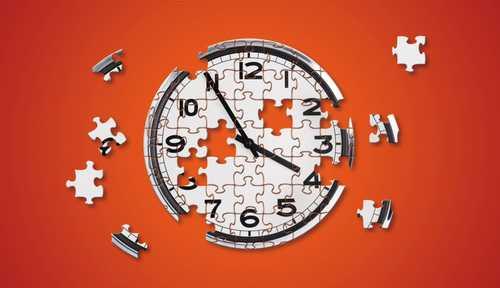Here's why you procrastinate, and 10 tactics that will help you stop
Curated from: alifeofproductivity.com
Ideas, facts & insights covering these topics:
5 ideas
·2.29K reads
Explore the World's Best Ideas
Join today and uncover 100+ curated journeys from 50+ topics. Unlock access to our mobile app with extensive features.
Takeaway : The more boring, frustrating, difficult, meaningless, ambiguous, and unstructured a task is, the more likely you are to procrastinate with it. 10 strategies that will help you stop: flip these characteristics to make a task less aversive, recognize how your brain responds to "cognitive dissonance", limit how much time you spend on something, be kind to yourself, just get started, list the costs of procrastinating, become better friends with future-you, completely disconnect from the Internet, form "implementation intentions", and use procrastination as a sign that you should seek out more meaningful work. Whew.
520
452 reads
Pychyl, in his research and during our interview, identified a number of task characteristics that make you more likely to procrastinate. Tasks that are aversive tend to:
- Be boring
- Be frustrating
- Be difficult
- Lack personal meaning and intrinsic rewards
- Be ambiguous (you don't know how to do it)
The more negative emotions you show toward a certain task, the more likely you are to procrastinate, and according to Pychyl, "any of these [characteristics] can do it".
521
461 reads
People, as a rule, overestimate how much motivation they need to do something. After all, usually you just need enough motivation to get started. For example:
One of the biggest recommendations Tim had was to simply get started. "Once we start a task, it is rarely as bad as we think." In fact, once you get started on something, your "attributions of the task change", and what you think about yourself changes, too.
Tim offered up a great tip in his book : "When you find yourself thinking things like 'I'll feel more like doing this tomorrow,' 'I work better under pressure,' 'There's lots of time left,' I can do this in a few hours tonight', let that be a flag or signal or stimulus to indicate that you are about to needlessly delay the task, and let it also be the stimulus to just get started."
530
471 reads
Limiting how much time you spend on a task makes the task more fun, more structured, and less frustrating and difficult because you'll always be able to see an end in sight.
There are some huge productivity benefits to the idea as well. When you limit how much time you spend on something instead of throwing more time at the problem , you force yourself to exert more energy over less time to get it done, which will make you a lot more productive.
According to Tim, when you procrastinate "negative self-talk comes out in spades" , which is completely counterproductive.
521
453 reads
When I interviewed David Allen, who wrote the terrific time-management book Getting Things Done , one stat he mentioned still sticks out in my mind: that 80% of the thoughts you say to yourself in your head are negative. And it's pretty difficult to procrastinate without deceiving yourself.
525
461 reads
IDEAS CURATED BY
Stasher 534142's ideas are part of this journey:
Learn more about habits with this collection
How to make good decisions
How to manage work stress
How to manage email effectively
Related collections
Similar ideas
12 ideas
Here's why you procrastinate & tactics that will help you stop
alifeofproductivity.com
3 ideas
Read & Learn
20x Faster
without
deepstash
with
deepstash
with
deepstash
Personalized microlearning
—
100+ Learning Journeys
—
Access to 200,000+ ideas
—
Access to the mobile app
—
Unlimited idea saving
—
—
Unlimited history
—
—
Unlimited listening to ideas
—
—
Downloading & offline access
—
—
Supercharge your mind with one idea per day
Enter your email and spend 1 minute every day to learn something new.
I agree to receive email updates
